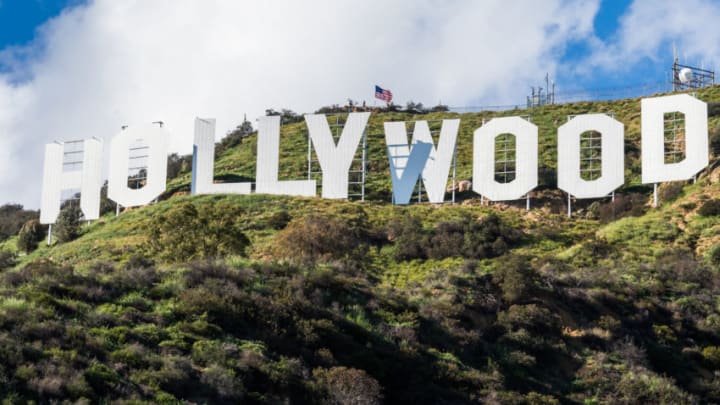As No Time to Die becomes the first major postponement, the potential impact of coronavirus on the entertainment world is becoming apparent.
As the movie business nears its most lucrative time of year, the novel coronavirus is spreading fear in the Hollywood Hills that audiences will be reluctant to flock to theaters like usual, potentially altering release schedules and production.
The first major delay came on March 4, when MGM and Universal announced the new James Bond movie, No Time to Die, would be delayed until November 2020 after “careful consideration and thorough evaluation of the global theatrical marketplace.” Previously, the Chinese premiere of the film had been canceled.
As of now, coronavirus has infected nearly 100,000 and killed more than 3,000, with multiple major outbreaks across Europe and Asia. This week was the first in which more new cases were diagnosed outside China than inside, signaling that the ripple effects will continue spreading around the world for the immediate future.
Though relatively few Americans have been diagnosed with the virus yet, much of the revenue produced by the big Hollywood releases today comes overseas, especially in China. China’s 70,000 movie theaters have been closed for over a month amid a national lockdown and the Asian country the epicenter of what could soon become a global pandemic.
The results could be devastating. As Business Insider notes, the two most recent James Bond films earned at least $59 million in China, while a film like Mulan could lose perhaps its biggest market if Chinese audiences cannot watch.
The movie industry is increasingly global both in terms of who makes films and who consumes them. A key passage from Variety explains the stakes in China:
"Multiple studios are considering scenarios where they would release films directly to digital platforms in China, sources say, to complement global rollout strategies and stave off a serious threat of piracy in the region. Government officials in China have expressed to the majors that their movies will be necessary for coaxing audiences back to theaters, if and when the crisis ends, says one individual familiar with the talks."
Variety also reports a straight-to-digital release of Chinese comedy Lost in Russia, which was made available for free, received 600 million views across three days. As people are forced into long, solitary days, they are spending more time online, so perhaps there is a silver lining for more creative distributors, or digital-first companies like Netflix.
Aside from box office revenue, films set for production in 2020 are facing difficult decisions about whether to proceed as well. The latest Mission: Impossible shut down production in Italy after the southern European country saw one of the biggest outbreaks outside China, while CBS wrapped international reality show The Amazing Race early.
While a recent study showed a plurality of Americans have not let the outbreak affect their leisure time, with 50 percent saying they are equally likely to go to the movies as they were previously, and 47 percent saying the same about concerts and amusement parks.
However, the information is in its earliest stages, as Americans have not really had to grapple with a true outbreak. Should they have to, it’s easy to expect the same sort of lockdown will happen in the United States.
More from Entertainment
- 10 greatest fictional football players of all time
- Stephen A. Smith learned quickly not to mess with Rihanna
- Everything to know about Taylor Swift’s Thursday Night Football appearance
- House of the Dragon live stream: How to watch
- From boxing to cinema, Javon Walton stars in Samaritan with Stallone
AMC Theatres CEO Adam Aron said on a recent investor call “economic impact on AMC from the coronavirus has been minimal.” But without the final Avengers or Star Wars films to buoy the movie business in 2020, this was already expected to be a slower year at the cinema, so an even slower crawl could get ugly.
Many film and content festivals are also being pared back or canceled. Amazon and Twitter both will not attend South by Southwest, which begins next weekend in Austin. Disney canceled the March 5 launch even for Disney+ in London. This will prevent projects that are thought up when powerful creatives get together in a room from being cooked up as they typically are. Distributors like Netflix and others will not be able to poach films at SXSW as usual.
This week, the Federal Reserve lowered interest rates by about 0.5 percent in an emergency effort to stem the bleeding of the global economy. A statement from the Fed said the coronavirus “poses evolving risks to economic activity.”
While the entertainment industry is surely not the biggest concern among the scientists and doctors working to solve this international crisis, Hollywood is one of America’s biggest industries, a way to bring people together during a time of turmoil, and something people will need increasingly more of as more become bedridden or quarantined.
For more information about COVID-19, visit the CDC’s website or the website for your state’s Department of Health.
